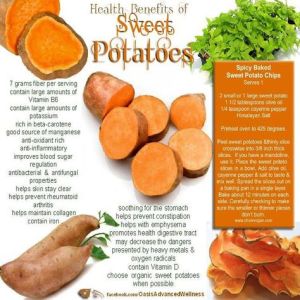Since January of 2013, a segment on Nutritional Nuggets has been featured in the Laborers With Christ (LWC) DeRoos Drumbeat monthly newsletter. (Drumbeat Archives) Since April of 2014, the Nutritional Nuggets segment started sharing about the benefits of individual fresh foods. This page will focus on bringing all of the individual fresh fruits and vegetable nuggets into one place for easy reference. Enjoy!
June, 2017 LWC DeRoos Drumbeat

“The Incomparable One”
Basil is one of the most important herbs in many cultures and cuisines. There are actually some significant botanical differences between the more than 40 types of basil plants. Some non-edible kinds are cultivated for ornamental purposes or to ward off garden pests, but basil carries powerful medicinal properties that goes far beyond its known culinary value. Some of the many species of basil include: sweet basil, lemon basil, Italian or curly basil, holy basil (India’s most important herb and known as Tulsi in Hindu and means “The Incomparable One”), Thai basil and lettuce-leaf basil.
Basil is prepared as a tea or sometimes as a topical treatment to speed wound healing. Basil’s natural compounds defend the herb from hungry insects and invasive bacteria and fungi. It is no surprise, then, that they can help protect us as well. Basil is incredibly good for balancing the mind, body and spirit.
This incomparable herbs has an anti-microbial, anti-inflammatory, anti-diabetic, anti-oxidant and anti-cancer activity. You will be amazed at all it has to offer for your health.
Anti-inflammatory
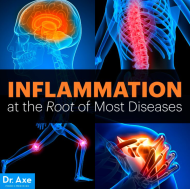 Eugenol, citronellol and linalool are all enzyme-inhibiting oils that are in Basil that help lower inflammation. Inflammation is the body’s first defense against infection, but when it goes awry, it can lead to the root of most diseases.
Eugenol, citronellol and linalool are all enzyme-inhibiting oils that are in Basil that help lower inflammation. Inflammation is the body’s first defense against infection, but when it goes awry, it can lead to the root of most diseases.
…Basil contains large quantities of E-Beta-CaryoPhyllene (BCP) which may be useful in treating arthritis or bowel diseases by blocking the signals that lead to inflammation associated with arthritis.
…Inhibits the release of pro-inflammatory cytokines (direct cell-to-cell communication) and nitric oxide (mediate cell-signalling reactions).
These “inflammatory cascades” put stress on the organs and slows down blood circulation, hormone regulation and cognitive processes. Reducing inflammation places your body in a state that is conducive to healing. Basil disrupts this cascading effect.
Dr. Andrew Weil has created a food pyramid of anti-inflammatory foods.
Antioxidant its ability to inhibit cancer is the most heavily researched and probably the most interesting.
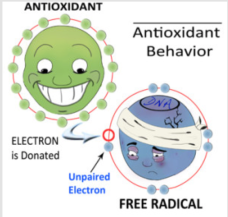 …Basil increases antioxidant activity
…Basil increases antioxidant activity
…Alters gene expressions positively
…Basil Induce death of harmful cells
…Stops cancerous tumors from spreading
…Selectively protects normal tissues and cells from the negative effects of cancer treatments like radiation or chemotherapy.
Antimicrobial Properties – precision nutrition (click link to appreciate full view)
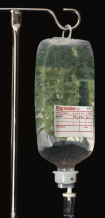
…Basil helps in inhibiting resistant strains of bacteria that don’t respond to antibiotic treatments.
…It may improve the body’s immunity by the production of infection-fighting antibodies by up to 20 percent. Fresh Basil is better than dried Basil.
…Basil essential oil fights against a wide range of bacteria, yeasts, molds, viruses, and candida.
…Protects against various forms of skin irritations
European scientists are investigating the use of basil oil as treatment for antibiotic resistant infections with Staphylococcus, Enterococcus, and Pseudomonas.
Anti-Depression
 Basil stimulates neurotransmitters that regulate hormones that lifts your mood and makes you happy.
Basil stimulates neurotransmitters that regulate hormones that lifts your mood and makes you happy.
Anti-stress – The Adaptogenic SuperStar
 …Basil helps the body adapt to stress.
…Basil helps the body adapt to stress.
…Basil helps keep stable cortisol levels that result in improved mental clarity and memory. The individual feels as though they are less agitated and anxious and therefore able to perform better and have higher quality of life.
Cells in stress mode cause us to crave things that can sabotage our health, including junk foods. It can also cause depression, anger, and lead to drug and alcohol abuse.
Stress keeps the cell from absorbing nutrition, oxygenation and hydration. In order to succeed and find happiness and health, you need to change your cellular programming from fear (or stress) to love, which triggers a natural chemical reaction that fuels you for success. Fuel with the right foods and meditate on God’s promises.

![]() Chewing 10 to 12 leaves of basil, twice a day, to prevent feeling stressed and developing stress related disorders.
Chewing 10 to 12 leaves of basil, twice a day, to prevent feeling stressed and developing stress related disorders.
![]() Chewing the leaves daily can also help purify your blood and a significant decrease in blood sugar levels
Chewing the leaves daily can also help purify your blood and a significant decrease in blood sugar levels
Antiseptic

When basil leaves are rubbed onto bug bites they can help reduce itching.
![]()
t is as an insect repellent: Basil + Lemon = 2 cups water, 5 drops lemon essential oil, 10 drops basil essential oil, 20 drops citronella essential oil.
Cardiovascular Health
 …Basil can help the muscles that control blood vessel function to contract and relax those muscles.
…Basil can help the muscles that control blood vessel function to contract and relax those muscles.
…Basil helps prevent dangerous blood platelets from forming and clotting.
Basil Tea
 Pain-reducer (analgesic) works as a muscle relaxant.
Pain-reducer (analgesic) works as a muscle relaxant.
Drink basil tea twice a day.
![]() Put some fresh basil leaves in a cup of boiling water and allow it to sit for a few minutes. Sip the tea slowly and your headache will vanish away gently.
Put some fresh basil leaves in a cup of boiling water and allow it to sit for a few minutes. Sip the tea slowly and your headache will vanish away gently.
![]() (Expectorant) Basil & Honey – Basil juice + 1 Tbsp. Honey = Crush some Basil leaves to extract juice. Take one teaspoon and drink it slowly. Drink it regularly on an empty stomach in the morning. Take twice daily. (See more useful remedies here.)
(Expectorant) Basil & Honey – Basil juice + 1 Tbsp. Honey = Crush some Basil leaves to extract juice. Take one teaspoon and drink it slowly. Drink it regularly on an empty stomach in the morning. Take twice daily. (See more useful remedies here.)
Digestive System drink basil tea to treat other common stomach problems such as constipation, indigestion, piles, and acidity.
Fever-reducer
 A fever is basically a symptom of another condition or illness. A fever can occur when your body is fighting an infection, such as the flu. A fever is a good thing and usually will go away within a few days. But if a fever is making you uncomfortable, you can try some simple and easy home remedies to cool the body down and make you feel better. The healing properties in Basil will help reduce fever very quickly.
A fever is basically a symptom of another condition or illness. A fever can occur when your body is fighting an infection, such as the flu. A fever is a good thing and usually will go away within a few days. But if a fever is making you uncomfortable, you can try some simple and easy home remedies to cool the body down and make you feel better. The healing properties in Basil will help reduce fever very quickly.
 Boil together 20 basil leaves and one teaspoon of crushed ginger in one cup water, until the solution gets reduced to half. Add a little honey and drink this tea two or three times a day for three days.
Boil together 20 basil leaves and one teaspoon of crushed ginger in one cup water, until the solution gets reduced to half. Add a little honey and drink this tea two or three times a day for three days.
Diabetes

Basil prevents and control the level of sugar in the blood, increases and stabilizes the insulin production, thus putting diabetes in check.
A study out of the Indian Journal of Clinical Biochemistry indicated that holy basil may reverse some of the damaging effects of diabetes such as neuropathy and retinopathy.
Liver Basil protects liver from damage. 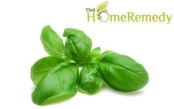 Kidney Basil strengthens Kidney function.
Kidney Basil strengthens Kidney function.
 With five to six fresh basil leaves with water on an empty stomach.
With five to six fresh basil leaves with water on an empty stomach.
 Basil Pesto:
Basil Pesto:
2 cups fresh basil
1/2 cup raw almonds or pine nuts
1/4 cup olive oil
2 cloves garlic
 http://www.top10homeremedies.com/superfoods/top-10-health-benefits-of-basil.html
http://www.top10homeremedies.com/superfoods/top-10-health-benefits-of-basil.html
https://draxe.com/benefits-of-basil/
http://drjockers.com/3-reasons-to-use-holy-basil/
https://www.ncbi.nlm.nih.gov/pubmed/12114286
http://www.herbwisdom.com/herb-basil.html
May, 2017 LWC DeRoos Drumbeat
Asparagus
 As the season of spring approaches, one can find asparagus lovers walking along the side of a dirt road in Iowa, looking for wild asparagus growing in the ditches.
As the season of spring approaches, one can find asparagus lovers walking along the side of a dirt road in Iowa, looking for wild asparagus growing in the ditches.
Originating 4,000 years ago the eastern Mediterranean regions of the Greeks, Romans, Syrians, Spanish, Persians, and Babylonians this elegant spring vegetable was prized so much so that Queen Nefertiti of Egypt considered asparagus the “food of gods.” Meanwhile, King Louis XIV of France named it the “food of kings.” Early Greeks and Romans actually believed that asparagus had healing qualities and could be used to treat bee stings and toothaches. In 1100 AD, Byzantine physicians had declared it a medicinal plant. Romans considered it an aphrodisiac.
Urine Production
 A natural diuretic, asparagus can help increase urine production in the body. By expelling water from the body, it reduces the concentration of unnecessary salts and fluids.
A natural diuretic, asparagus can help increase urine production in the body. By expelling water from the body, it reduces the concentration of unnecessary salts and fluids.
This is helpful for people suffering from edema, which is retention of water in the body tissues or high blood pressure.
Good for Digestive Tract
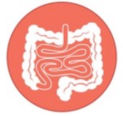
Asparagus has a lot of soluble and insoluble fiber, which is crucial for digestive health. Dietary fiber
removes mucoid plaque and other toxins from the gut while being expelled.
With regular bowel movements, you find relief from constipation, and gain some protection from colon cancer. The fiber inulin (a prebiotic ‘a good bacteria food source’ complex of sugar used medically to test kidney function) in asparagus promotes healthy bacteria growth in the gut.
Healthy Bone
 Being rich in vitamin K, asparagus helps lower the risk of coronary calcification and coronary heart disease.
Being rich in vitamin K, asparagus helps lower the risk of coronary calcification and coronary heart disease.
Vitamin K helps you absorb more calcium, and you can thereby prevent osteoporosis and bone fractures.
Pregnancy
 Significantly lowers miscarriages or neural tube defects because of folic acid, while chances of low weight, premature delivery, and retardation decrease.
Significantly lowers miscarriages or neural tube defects because of folic acid, while chances of low weight, premature delivery, and retardation decrease.
Destroys Carcinogens
 Carcinogens are a substance capable of causing cancer in living tissue.
Carcinogens are a substance capable of causing cancer in living tissue.
Rheumatism is a disease marked by inflammation and pain in the joints or muscles.
Asparagus is particularly efficient in immunizing against varieties of bone, breast, lung, pancreatic, cervical, and colon cancers.
Vitamin B3 Niacin (9%) can reduce swelling and lower joint pain.Asparagus has been shown to have anti-inflammatory and analgesic properties.
Since inflammation and chronic oxidative stress often cause cancer, the anti-inflammatory benefits of asparagus can be a great way to ward it off.
Fights Depression

Depression is becoming more common every day partly because of increased stress and partly because of high homocysteine (amino acid) levels, which impede the pathway to the brain for nutrients and blood cells. This affects production and secretion of some important hormones, such as serotonin, dopamine, and norepinephrine. These hormones make you feel good and keep your spirits high. Besides regulating your mood, these hormones also regulate sleep and appetite, so including asparagus in your diet can help ensure emotional stability.
High homocysteine levels also increases chances of heart diseases.
Blood-Sugar Regulation
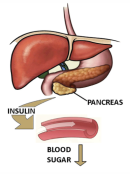
The soluble fibers and antioxidants in asparagus can help prevent type 2 diabetes. They slow down the absorption of glucose in the digestive tract, while the antioxidants remove inflammation associated with diabetes.
The B vitamins also help metabolize starches and sugars and help manage blood sugar.
Calcium has direct effect on the pancreatic cells that regulate insulin secretion.
Skin Health
 Asparagus is excellent for getting rid of acne (even the severe type).
Asparagus is excellent for getting rid of acne (even the severe type).
Its antioxidant glutathione fights free radicals and reverses the aging effect of sun damage on skin.
It also helps heal skin wounds faster.
Copper also helps build collagen and produces elastin (a protein forming the main constituent of elastic connective tissue), which improves the skin’s firmness and elasticity.
Kidney Stone Prevention
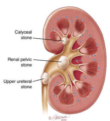
Asparagus also contains vitamin B6, which decreases urinary oxalate production, a factor behind calcium oxalate kidney stone production.
It can flush out superfluous salt and fluids from your body as well as toxins in the kidneys, which can help prevent kidney stones from forming.
Anti-urolithiatic (Urolithiasis describedcalculi or stones that form the urinary tract) effect, which can help prevent or cure urinary tract infection by eliminating formation of stony concretions in the tract.
If you aren’t suffering from uric acid kidney stones, however, and want to prevent kidney stones in general, asparagus is a great choice.
Menstrual Health

PMS, mood fluctuation, cramps, and uncomfortably heavy flows often accompany periods.
Asparagus contains vitamin K and calcium, which can help combat these symptoms if you happen to have them.
Vitamin K regulates our hormones so that you don’t experience cramps and other pains of menstruation.
Boosts Fertility

It reduces lipid per-oxidation in sperm cells, keeping them
healthy and motile, and also thickens the lining of the uterus.
Vitamin C plus Folate promote and nourish sperm cells and increase sperm count, keeping it voluminous and healthy.
Mainly, Folate helps create sperm cells with the correct chromosomal structure that is required for fertilization.
Hangovers

Hangovers are often accompanied by: anxiety, nausea, fatigue, dehydration, and stomach disorders.
Brain Health
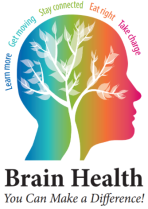
The impact neurodegenerative diseases, such as Parkinson’s, Alzheimer’s, and Huntington’s, can be very harmful.
By adding more asparagus to your diet, however, you can lessen your chances of developing such diseases.
Interesting Facts:
- White asparagus is grown underground or under plastic domes, and the lack of chlorophyll gives it its shade.
- Purple asparagus is naturally grown and has a fruity flavor that is often enjoyed raw.
- When it’s really hot outside, asparagus can grow up to seven inches in a single day.
- Asparagus, coming from the salty Mediterranean basins, can tolerate high levels of soil salinity, which is why farmers once used sea salt as a herbicide.
Recipe tip: In a small bowl, combine 2 tablespoons sesame oil, 1 tablespoon olive oil, 1 crushed garlic and 2 tablespoons sesame seeds. Brush the mix over the asparagus and grill for about 4 minutes on each side.
Sources:

http://www.well-beingsecrets.com/health-benefits-of-asparagus/
http://drjockers.com/top-5-health-benefits-of-asparagus/
https://www.ncbi.nlm.nih.gov/pubmed/19895471
April, 2017 LWC DeRoos Drumbeat

Radishes:
Big Ravishing, Health Benefits
in a Little Package
- How can something so little have such big health benefits that the Chinese not only used it for medicine but was also valued in Greece so much so that gold statues were fashioned in their image?
- Could The Radish be the #1 blood cleanser?
- Why you should eat the greens!
- Learn how to create this beautiful plate of radishes as a center piece. Radish Rose Flower Garnish
- Why are some Radishes hot? *See interesting facts below
The green parts of a radish contain more nutrients than the entire radish itself. They help provide a nutrient rich diet and also some important minerals like iron (helps to maintain healthy cells, skin, hair and nails), calcium, folic acid, vitamin C and phosphorous that are essential for many bodily functions.
- they help prevent scurvy
- help treat painful conditions like hemorrhoids (piles) .
- Rheumatism
- High Iron ideal deterrent to fatigue
- And more listed below
Radishes have been around for a long time before the Roman Empire to be used as a food and for medicine, for the ability to decrease excess heat in the body that can build up during the warmer months. Even the Centers for Disease Control (CDC) and Prevention reports that radishes were once so valued in Greece, that gold statues were fashioned in their image. Radishes were used to heal cuts and bruises, keeping your memory sharp, for maintaining fluid balance in your body, to treat coughs, liver problems, and arthritis. You will understand why upon reading further. Yet Radishes are one of the most ignored vegetables on your local produce aisle and they shouldn’t be! The Greeks served their radishes with honey and vinegar. Try this and let me know how you like them.
Respiration
If you have chronic bronchial flare-ups, sinus infections or asthma, radishes can act as a natural decongestant.
Healthy Heart
Potassium (K) the third most abundant mineral found in the human body. Potassium is a health insurer as it keeps the heart beating.The fiber (one-half cup of radishes contains 1 g of fiber), vitamins and minerals in radishes make them a smart choice for cardiovascular health. They’ve been shown to lower cholesterol, manage diabetes, regulate blood pressure and blood sugar levels, relieve congestion, and prevent respiratory problems such as asthma or bronchitis.
Digestion & Detoxification & Jaundice
Concerned about yellow tinge in the skin, mucus membranes, or eyes often present in newborns. Jaundice occurs when bilirubin builds up in bile faster than the liver can break it down and pass it through your body. Your liver and gallbladder depend on bile to keep them running smoothly, and radishes have been shown to stimulate bile production. The sulfuric properties of radishes also help regulate bilirubin production by removing it. and flush the excess from your blood. Radishes also inhibit red blood cell damage by supplying fresh oxygen to your blood. The fiber content regulates bowel movements to flush toxins more efficiently and to help prevent constipation.
Kidney Cleanse
There are few foods that work as well as the radish at preventing urinary tract infections (UTIs). Drinking juice that includes radish eases the burning most experienced during a UTI and shortens the length of time you’ll have to deal with the infection. Radishes are a natural diuretic, purifying the kidney and urinary systems and relieving inflammation.
Improve Skin Conditions
Disinfectant antibacterial and anti fungal properties help clear up skin conditions and soothe rashes, dryness, and other skin disorders.
Sooth sore throats
Their pungent flavor and natural spice can help eliminate excess mucus in the body and can be especially helpful when fighting a cold. Radishes can help clear the sinuses and soothe sore throats too.
Vitamins C
Radishes are an excellent source of vitamin C that works in the body to:
- rebuild tissues
- blood vessels raising blood acidity, and physicians recommend 750-1,500 mg of daily Vitamin C intake)
- Maintains and keeps bones and teeth
- Cellular damage that can lead to cancer and other diseases (cancer, heart disease, stroke)
- Natural cleansing effects (The Vitamin C Flush – enema-like evacuation although its primary purpose is getting vitamin C into the tissues and cleaning gut.)
- Can help prevent viral infections increasing immunity of the body
Vitamin C is water-soluble, which means it is not stored in the body and you must replace it daily. A 1/2-cup serving offers 8.6 mg.
Folate (vitamin B9) is one of many essential vitamins. Folic acid (the synthetic version) is a form of folate used for food fortification and supplements. Folate is important because it plays a role in:
- DNA synthesis and repair.
- Encourages cell and tissue growth
- Supports Normal Fetal Development
- Promotes Sperm Viability
- Great for the Heart (helps metabolize homocysteine into methionine, an essential amino acid)
- May Reduce the Risk of Stroke
- Encourages Normal Cholesterol Levels
- Provides Neurological Support known to encourage the creation and absorption of neurotransmitters.
- Great for Colon Health
- Reduces the Risk of Age-Related Macular Degeneration form).
- It has a positive action on cardiovascular, neural and psycho-emotional health.
Other less prominent nutrients that support the healthy properties of radishes are:
- riboflavin (regulating the thyroid activity)
- good amounts of copper (Copper is one of the minerals required for coding enzymes, producing melanin and tissues in our body.)
- vitamin B6 (Vitamin B6 helps in building many amino acids which help in proper transmission of nerve impulses)
- magnesium known to help muscle spasms (helps in maintaining normal muscle and nerve function
- manganese (strong antioxidant that scavenges the free radicals in the body and is essential for the metabolization of cholesterol, carbohydrates, and protein.)
- calcium (bone and teeth)
Interesting Facts:
- Night of the Radishes: In Oaxaca in Mexico, December 23rd is known as “The Night of the Radishes” (Noche de Rabanos). The festival features depictions of all kinds of subjects, including nativity scenes – all carved from radishes!
- Did you know radishes can cure ills? Radishes can help with stomach ache and hiccups (but too many can make you burp …. !)
- *Hot weather, hot radishes: If it’s a long, hot summer, you get hotter radishes and similarly when it’s milder you get cooler radishes.
- Ancient Wages: Radishes, onions and garlic were paid as ‘wages’ to the Ancient Egyptian labourers who built the Pyramids.
Sources:
- http://foodfacts.mercola.com/radish.html
- http://undergroundhealthreporter.com/health-benefits-of-radishes/
- http://www.livestrong.com/article/413273-health-benefits-of-radishes/
- http://www.globalhealingcenter.com/natural-health/9-incredible-health-benefits-of-folate/
- http://nutritiondata.self.com/facts/vegetables-and-vegetable-products/2606/2 (NUTRIENT BALANCE INDICATOR™ from Nutritiondata.self.com to the right)
- http://www.stylecraze.com/articles/health-benefits-of-radish-leaves/
- http://www.beyondhealthnews.com/wpnews/index.php/2012/08/the-vitamin-c-flush-a-critical-weapon-in-the-fight-for-health/
March, 2017 LWC DeRoos Drumbeat
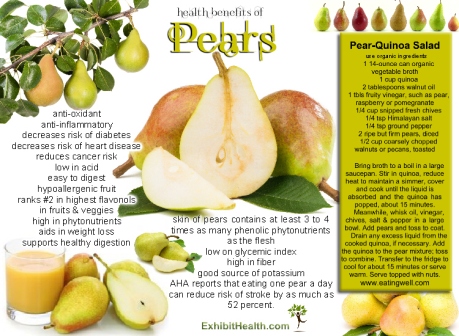 PEARS
PEARS
The Fiber Fruit
Pears are an integral part of the fruit diet of many cultures around the world, and these oddly shaped and succulent fruits certainly provide a lot of nutritional value and medicinal benefits.
Pear trees can withstand cold temperatures, which is one reason they’re harvested year-round and grown in nearly every continent on Earth.
Pears and apples have similar molecular qualities and fiber contents, but a major difference between pears and apples is that the flesh of pear contains stone cells (also called “grit”) while apples don’t.
Digestion and Intestinal Health: Eating more pears is a great way to prevent or treat digestive issues. With a single serving of pears providing 18% of the daily requirement for fiber intake, they can be a very strong agent for digestive health and function. Most of the fiber is non-soluble polysaccharide (NSP), which means that it acts as a bulking agent in the intestines.
1 Doctors generally consider pears to be a hypoallergenic fruit because they are less likely than other fruits to produce an allergic response when eaten, which is good news for even infants and making homemade baby food. Because pears produce relatively few allergic reactions, allergists often place this rarely allergenic tree fruit on the menus of control diets to help patients identify other allergies. For those who suffer from digestive issues or reactions eating a pear is a good choice.
Pears (rank #2 of 20) as the ultimate high-fiber food. The specific type of gritty fiber found in pears called pectin (considered to be a natural diuretic and has a mild laxative effect) is very useful in helping to lower cholesterol levels naturally. by binding to bile salts—which are made from cholesterol—and carrying them out of the body reducing risk of stroke by up to 50%. Fiber regulates bowel movements and recedes the chances on constipation, as well as diarrhea and loose stool. Furthermore, it stimulates secretion of gastric and digestive juices so food moves smoother, in a more digested state as natural constipation relief remedy and hemorrhoid remedy and treatment.
Are you getting enough fiber?
Recommended Daily Fiber: Women 25 grams Men 35-40 grams
Cancer Prevention: Also, the gritty nature of pear fiber helps it bind to cholesterol and helps remove cancer-causing chemicals and free radicals in the colon and protects that organ from their damaging effects.
Makes a Good Pre- or Post-Workout Snack: 2Pears are one of the lowest calorie fruits. They are a high-energy, high-nutrient food with a low impact on weight gain and obesity. Therefore, people trying to lose weight often turn to pears to get the most “bang for their buck”. An average pear has just over 100 calories, which is 5% of daily calorie allowance of a healthy diet. 3 A pear is a great filling, hydrating snack that won’t weigh you down, and it also has immense nutritional value.
Control Diabetes: The bloodstream slowly absorbs a pear’s carbs (just about 26 grams per pear), preventing a spike in blood sugar.
Antioxidant Activity: Antioxidants work to eliminate the free radicals that accumulate in the body following cellular metabolism. These free radicals mutate healthy cell DNA into cancerous cells, and can cause a number of other devastating conditions. Antioxidant components of vitamin C, vitamin A, and flavonoid compounds like beta-carotene, lutein, and zeaxanthin (the most common carotenoid found in nature is a lipid soluble antioxidants), all of which are found in pears, can seriously help rid the body of these dangerous compounds.
Cancer Prevention: Antioxidants are primarily praised for their anti-carcinogenic activities, and pears have been connected to prevention of a number of different types of cancer, including colon, rectum, breast, prostate, and lungs. This is not unique to pears, but they do have a high antioxidant score, compared to many other fruits.
Immune System Health: Similarly, the immune system of the body is also boosted by the activities of antioxidants and vitamin-C. Vitamin C has long been known to be beneficial for the immune system, as it stimulates white blood cell production and activity. Traditionally, fruits like pears have been suggested to eliminate simply conditions like the common cold, the flu, or various other mild illnesses that a quick immune system boost could help cure.
Blood Pressure: Pears are a wonderful source of potassium, which means that they can have a significant impact on heart health, because potassium is a well-known vasodilator (dilatator of blood vessels). This means that it lowers blood pressure, which reduces strain to the entire cardiovascular system and makes it harder for clots to form or harm you. Furthermore, it increases blood flow to all parts of the body, which oxygenates the organs and promotes their effective function. Lowering blood pressure is also connected to a lower chance of cardiovascular diseases like atherosclerosis, heart attacks, and strokes. Finally, potassium works as a fluid regulator in the body, meaning that it keeps the various parts of the body hydrated, and ensures the balance of essential fluids in the cells and organs. Without potassium, many of our most essential functions would be either slowed down or stopped altogether!
Wound Healing and Tissue Repair: Vitamin C is also an essential part of synthesizing new tissue in various organs and cellular structures of the body. This keeps the body metabolism running smoothly and ensuring that all functions operate properly. Furthermore, wound healing is sped up with high levels of ascorbic acid, so small injuries, cuts, and damage done by injuries and diseases can be fixed faster if you add high levels of this essential nutrient to your diet, which pears do provide. It also helps to repair damaged blood vessels, which reduces the strain on the cardiovascular system and prevents certain heart diseases from developing.
Improved Circulation and Red Blood Cell Count: For patients that suffer from anemia or other mineral deficiencies, pears can be very helpful, due to its content of copper and iron. Copper facilitates and improves the uptake of minerals into the system, and increased levels of iron mean that red blood cell synthesis increases. Iron is an important part of hemoglobin and anemia is another name for iron deficiency. You can prevent fatigue, cognitive malfunction, muscle weakness, and organ system malfunction by consuming foods high in iron and copper, both of which are found in significant amounts in pears.
Birth Defects: Folates are another of the valuable nutritional components of pears. 4 Folic acid has been positively correlated with a reduction in neural tube defects in newborns, so eating folate-rich fruits like pears can protect the health and happiness of your baby, so pregnant women are always encouraged to monitor their folic acid levels.
Inflammation Reduction: The antioxidant and flavonoid components of pears can also induce anti-inflammatory effects in the body and reduce the pain associated with inflammation diseases. This includes the reduction in symptoms of arthritis, rheumatic conditions, gout, and similar conditions. Most fruits have these effects, although citrus fruits are not quite as effective.
Bone Health: The high mineral content of pears, which includes boron, magnesium, manganese, phosphorus, calcium, and copper, means that you can reduce bone mineral loss and debilitating conditions like osteoporosis and general weakness of the body due to lack of support from the bones.
Skin, Hair, and Eyes: One of the most versatile vitamins in the human body is Vitamin A. Pears are high in vitamin A. They can reduce the effects of aging on the skin, like wrinkles and age spots. This powerful fruit can also reduce hair loss, macular degeneration, cataracts, and various other conditions associated with the aging process.
Considerations:
Fewer than 5 percent of average Americans eat enough dietary fiber on a regular basis. Be aware that moving too rapidly from a diet low in fiber to one high in fiber can cause digestive side effects like gas, abdominal cramping and diarrhea. Dietary fiber is found only in plant-based foods — meat, poultry, seafood, eggs and dairy products don’t contain any
Sources:
- https://draxe.com/pear-nutrition/
- http://www.livestrong.com/article/196575-pear-allergy-symptoms/
- https://www.organicfacts.net/health-benefits/fruit/pears.html
February, 2017 LWC DeRoos Drumbeat
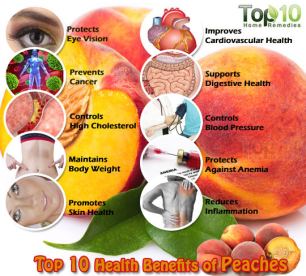 Peaches
Peaches
Peaches symbolizing immortality (or the wish for a long and healthy life) are a common symbol in Chinese art. Peaches scientific name, Prunus persica, literally means “Persian plum”, as it is closely related to the plum. Peach and nectarines are the same species, even though they are regarded commercially as different fruits. In contrast to peaches, whose fruits present the characteristic fuzz on the skin are dominant in a gene that produces trichomes (hairs) on the fruit. Nectarines are characterized by the absence of the recessive gene creating a (fuzz-less fruit). Peaches are also related to the cherry, apricot, and almond. Two varieties, available May to November, fall into two general types: freestone and clingstone, based on how tightly the pit adheres to the surrounding flesh. White peaches are sweeter than yellow peaches, but it is because white peaches are less acidic. Yellow peaches are more assertive in flavor and will stand up well in recipes needing a balance of sweet and tart. Freestones are usually preferred for eating fresh or for freezing, while clingstones are used primarily for canning.
1. Protects Eye Vision
Beta-carotene is responsible for eye health and peaches contain a good amount of this antioxidant, along with vitamins A and C. Regular consumption of peaches can improve your vision health by increasing blood circulation throughout your body.
The beta-carotene also nourishes and protects the retinas in your eyes from free radical damage, as well as the carotenoids build up in the macular tissue of your eyes and helping to prevent cataracts and age-related macular degeneration.
The powerful antioxidant like lutein, present in peaches is known as the “the eye vitamin”.
2. Promotes Skin Health
Peaches area great source of vitamins A and C, which are highly essential for skin health. Vitamin A provides moisture to the skin, which improves the skin’s texture making it soft and supple. Vitamin C is a powerful antioxidant that protects the skin from free radical damage.
Just one large peach a day can keep your skin glowing and flawless. You can also rub peaches directly on your skin to help get rid of dark circles and wrinkles.
3. Maintains Body Weight
Peaches are fat-free and contain an average of only 68 calories. The high amount of sugar in peaches is natural and therefore does not have an adverse effect on health. If you are on a weight-loss mission, having peaches handy will help you avoid more fattening and processed snacks.
4. Prevents Cancer
Peaches are rich with antioxidants that help prevent cancerous cell growth. Caffeic acid is an antioxidant specifically found in high levels in peach nutrition protecting the body from the dangerous carcinogenic mold aflatoxin that’s often found in certain types of food like peanuts, corn and peanut butter. Caffeic acid destroys 95% of the production of aflatoxin. Peaches are known particularly for effectively protecting the body against lung, colon and oral cancers. Also, polyphenols, phenolic acids, known as chlorogenic and neochlorogenic acid, in peaches successfully inhibited the growth and metastasis (spreading to other organs) of at least breast cancer cells. Peaches appear to stop one strain of breast cancer cell lines from growing without damaging normal cells. It is recommend breast cancer patients eat two to three peaches a day to experience the same cancer-protective effects.
The compounds in peach seeds reduce the growth of papilloma (tumors) on the skin and slow their carcinogenesis, the process by which benign tumors develop into cancer.
5. Controls High Cholesterol
Eating peaches on regular basis may help control high cholesterol and problems that lead to diabetes and heart disease. This is mainly because peaches contain phenolic compounds that prevent the oxidization of low-density lipoprotein, or LDL, cholesterol.
Also, foods rich in beta-carotene like peaches are good for lowering the cholesterol level in the blood stream.
6. Improves Cardiovascular Health
The antioxidants in peaches benefit your heart by destroying free radicals that start chain reactions within your body and can damage or kill cells. Peaches also contain bio-active compounds that help fight metabolic syndrome, a combination of risk factors that causes inflammation, obesity and heart problems.
There are also other nutrients in peaches that promote cardiovascular health by reducing cholesterol levels and increasing blood flow to the heart. Regular consumption of peaches will help protect you from heart attacks and strokes.
7. Supports Digestive Health
Eating peaches helps cleanse toxins from your colon, kidneys, stomach and liver due to its high fiber and potassium content. The high fiber content pushes out any excess toxic waste matter from your colon, and the high amount of potassium reduces kidney-related diseases and reduces your chance of developing ulcers. Peaches are easy on the digestive system and generally will not cause stomach discomfort.
8. Controls Blood Pressure
One large peach contains a high amount of potassium and very low sodium, which can help you maintain healthy blood pressure. Potassium works with sodium to regulate the body’s water balance and in turn helps to maintain a normal blood pressure.
Peaches also contain some magnesium, phosphorus, zinc, copper, manganese, iron and calcium, which work together to support red blood cells and promote healthy blood pressure. If you have high blood pressure, eating a peach daily can help combat the problem.
9. Protects Against Anemia
For those with iron-deficiency anemia, health experts suggest increasing your dietary intake of iron-rich foods like peaches. Iron helps increase the production of hemoglobin, thereby minimizing and preventing anemia. Peaches also have a high amount of vitamin C that helps your body absorb iron better.
10. Reduces Inflammation
Peaches have excellent anti-inflammatory, antimicrobial and antioxidant properties. Because inflammation is at the root of most diseases, it’s also helpful to know that peaches and other fruits like it help decrease inflammation levels in the body. Dieticians recommend that those suffering from gout or rheumatism eat peaches on a regular basis. The high vitamin A in peaches also helps treat rheumatism. Peaches also can have a diuretic or a light laxative effect that helps reduce inflammation, one of the major symptoms of gout and rheumatism.
To get the maximum health benefits from peaches, eat them raw along with the skin. Just eat one fresh peach daily as part of a healthy lifestyle diet.
Sources:
- https://draxe.com/peach-nutrition/
- http://www.fruitsinfo.com/peach-health-benefits-nutrition-values.php
January, 2016 LWC DeRoos Drumbeat
Sweetpotatoe’s
Sweetpotatoe’s belong to the Morning Glory family and are one of the oldest vegetables in the world. They are rated the number one nutritious vegetable by the Center for Science in the Public Interest. Sweetpotatoe’s are most commonly orange, but are also found in other colors, such as white, red, pink, violet, yellow and purple. The antioxidant activity and nutrient content of Sweetpotatoe’s increases with the color intensity of the flesh. Sweetpotatoe’s are healthier than regular potatoes. They have a lower glycemic index and more fiber.
1. Sweetpotatoe’s provide kind carbohydrates that don’t induce a sugar crash
Sweetpotatoe’s fall much lower on the glycemic index which is better for avoiding sugar crashes and better for diabetes control. They contain manganese, a little-discussed trace mineral is a pivotal component in the metabolism of carbohydrates in moderate amounts can help support and maintain healthy blood sugar levels even for those with diabetes. This can also help stabilize the appetite for hours.
Mayo Clinic explains “Because low glycemic index foods are absorbed more slowly, they stay in your digestive tract longer. This is why these foods are sometimes called slow carbs. These foods may help control appetite and delay hunger cues, which can help with weight management. Balanced blood sugar also can help reduce the risk of insulin resistance.”
2. Sweetpotatoe’s keep your digestion running and help beat disease
One medium sweet potato with skin provides roughly between 4 to 6 grams of fiber just enough to be included as a good source of fiber. The National Institute of Medicine set the Dietary Reference Intake for fiber at 21 to 25 grams a day for women while men should get 30 to 38 grams per day. Fiber appears to reduce the risk of developing various conditions, including heart disease, diabetes, diverticular disease and constipation.
3. Sweetpotatoe’s may keep some cancers at bay
Sweetpotatoe’s have the highest amount of beta carotene containing more beta-carotene, by weight or by volume, than any other fruit or vegetable, according to “The Color Code,” by Taylor Hartman, Ph.D., a book about the health benefits of colorful foods.
Vitamin A is useful in the prevention of several different types of cancer as it is one of the most potent antioxidants out there. A study by the Harvard School of Public Health’s Department of Nutrition found that for younger men, beta carotene, a fat-soluble plant pigment that can be converted into vitamin A, could provide protection against prostate cancer. Meanwhile, a Japanese study revealed that beta carotene may decrease the risk of colon cancer.
4. Sweetpotatoe’s are a prize for the eyes
All that beta carotene is an excellent nutrient for the eyes linking to preventing vision loss and macular degeneration. Ophthalmologist Jill Koury, M.D., states that vitamin A deficiency causes the outer segments of the eye’s photoreceptors to deteriorate, damaging normal vision.
Sweetpotatoe’s high antioxidant levels from vitamins C and E are also very kind to the eyes and may prevent degenerative damage. Beta-carotene also helps to internally protect your skin from sun damage by both deflecting and repairing cell damage caused by excessive UV exposure.
5. Sweetpotatoe’s could help conquer PMS blues
Experts estimate that up to 37 percent of Americans don’t get the recommended dietary intake (RDI) of manganese in their diet. Along with promoting good bone health, one study found that boosting manganese intake from 1 mg to 5.6 mg of dietary manganese per day helped women with PMS to have fewer mood swings and cramps. The trace mineral manganese is important for growth, development and metabolism.
6. Sweetpotatoe’s are a boon for childbearing.
Plant-based iron, like that found in sweetpotatoe’s, can potentially promote fertility, according to the Harvard Medical School. The vitamin A from sweetpotatoe’s beta carotene is also important for hormonal health during pregnancy and lactation.
7. Sweetpotatoe’s may tame inflammation
They are a good source of choline, a micronutrient in the B-vitamin family. Choline helps with sleep, muscle movement, learning and memory, among other things, but it is also important in reducing chronic inflammation.
8. Sweetpotatoe’s help blood pressure!
A medium Sweetpotatoe contains almost 500 mg, making it one of the higher potassium vegetables. Potassium is an important electrolyte that helps regulate the natural rhythm of the heart, and maintains normal function of the brain and central nervous system by helping nerves and muscles communicate and by transporting nutrients into cells and moving waste products out of them, among other tasks. A diet rich in potassium is important in offsetting sodium’s harm to blood pressure. Medical News Daily notes that a high potassium intake is associated with a 20 percent decreased risk of dying from all causes! Vitamin B6 helps keep the walls of these important blood passageways flexible and healthy which allows blood to flow freely.
Sources:
- https://draxe.com/sweet-potato-nutrition-facts-benefits/
- http://foodfacts.mercola.com/sweet-potatoes.html
- http://www.naturalnews.com/035739_sweet_potatoes_beta-carotene_nutrients.html
December, 2016 LWC DeRoos Drumbeat
 Kiwi
Kiwi
also known as the “strawberry peach”
Did you know that Vitamin C levels in Kiwifruit outshine oranges. Kiwi are considered a superfood because they are a high-antioxidant food. High-antioxidant foods behave like self-sacrificing soldiers to “calm the fires” in our immune system. Cellular damage (an internal rusting of tissues) occurs when these soldiers lose control.
1. Incredible Source of Antioxidant-Powered Vitamin C and E
(1) The Vitamin C provides help in repairing and maintaining a number of body tissues and systems.
(2) Kiwi vitamin E is loaded with omega-3 fatty acids. It is also a strong component in lowering cholesterol and fighting free radicals. The Kiwi seeds are where the vitamin E comes from. Vitamin E is responsible for balancing hormones, normalizing cholesterol levels, improving the moisture and elasticity of skin, strengthening hair, improving eyesight, protecting against memory loss and cognitive decline, and enhancing muscle strength and physical endurance levels.
(3) Kiwifruit is also rich in polyphenols that stimulate protective activity for a strong immune system response.
2. Counteracts Aging and Improves Skin Health
(1) Collagen is the most abundant protein in our bodies and the building block that maintains the skin, muscles, bones and tendons. These four building blocks break down as we age and are dependent on vitamin C. Polysaccharides, a carbohydrate of many combined sugars types, are in kiwifruit and able to double collagen synthesis in the body. Collagen also reduces cellulite and stretch marks.
(2) Kiwi is also host to a carotenoid an antioxidant called lutein, “the eye vitamin,” is incredibly beneficial to skin health by protecting the skin from UV light.
3. Improves Respiratory Health
Kiwifruit and other fruits high in vitamin C content have been used successfully to treat a number of respiratory illnesses. Both adults and children suffering from asthma and other respiratory illnesses and infections after adding showed beneficial reactions when kiwifruit is added to their diets. Kiwi is able to enhance the vitamin C concentration in the body, which was able to reduce the symptoms of wheezing, head congestion and duration of sore throat.
4. Good for Vision and Prevention of Eye Disease
(1) Kiwifruit has 171 milligrams of lutein in one large fruit, which is substantially higher than almost any other fruit. This offers substantial eye protection by filtering out damaging short-wavelength UV light.
(2) Kiwifruit has a great supply of another carotenoid, Vitamin A, which is also largely beneficial to optimum eye health.
5. Aids in Digestion
Don’t throw again the skin. The kiwifruit skin is completely edible and makes this nutrient-dense fruit even more nutritious! A recent study shows that eating the skin triples the fiber intake compared to merely eating the flesh. And by not peeling the skin, you preserve much of the vitamin C content as well. Kiwi has shown promise as a treatment of bowel and digestive disorders such as reducing complications related to irritable bowel syndrome as well as inflammatory bowel disease. Kiwi’s antioxidant action that “calms the fires” and high fiber content, overall improvements have been seen in bowel function.
6. Improves the Cardiovascular System
(a) Kiwifruit is a heart-healthy superstar. One kiwi a day can provide a lower risk of stroke, blood clots and cardiovascular diseases.
(b) Kiwifruit helps lower blood pressure, counteract sodium in the body and is a vasodilator, relaxing the blood vessels throughout the body. The fiber found in Kiwi is also very heart-healthy, along with vitamin K, which is able to prevent the buildup of calcium in the arteries and therefore able to reduce the risk for heart attacks.
(c) Kiwifruit has the ability to lower triglyceride level by 15 percent for those who consumed it.
(d) Kiwifruit is also a great source of omega-3s, magnesium, vitamin E and copper, all of which help keep the cardiovascular system working properly.
7. Bone Maintenance and Repair
Kiwifruit’s substantial supply of Vitamin K is needed in your body for more than just healthy arteries. Vitamin K is needed to use calcium to make bones. Improve bone health and reduce the risk of bone-related injuries and diseases like osteoporosis by consuming Kiwi.
8. Serotonin Puts Sleep Problems to Bed
(a) Surprise! The Serotonin content in kiwi may be why the fruit has a long-running reputation for its sleep-aiding abilities. The serotonin in kiwifruit has been shown to increase sleep time and sleep efficiency by 13 percent and 5 percent, respectively, so if you can’t sleep, Kiwi may help.
(b) There is also evidence to suggest serotonin may also helps boost memory and mood and can even help with depression. A good nights sleep also contributes to helping these conditions.
9. Anticancer Effects
(a) Kiwi has been used for treating ailments like joint pain, bladder stones, and cancers of the liver and esophagus. Both the fruit and roots of kiwi have proven inhibitory effects on human liver, lung and colon cancer cell growth.
(b) The polysaccharide content and the abundance of antioxidants found in kiwi nutrition have shown anti-tumor and reduction of cancer cells.
10. Anti-fungal and Anti-bacterial Capabilities
(a) Both green and golden kiwifruit has shown anti-fungal and antibacterial capabilities in several studies. The most antibiotic activity has been found in the seeds, which are commonly consumed with the fruit because of their small size.
(b) The golden kiwi fruit contains a protein called actinchinin, which is suggested as the origin of its anti-fungal capabilities.
Potential Side Effects of Kiwi
Kiwifruit allergy is very common and responsible for 10 percent of all food allergy reactions in children.
Sources:
Dr. Axe
August, 2016, LWC DeRoos Drumbeat
 Pineapple
Pineapple
The first written record of the word “Pineapple” in English was in 1398 and it was used to refer to a pine cone. It comes from the Spanish word for pine cone, “piña.” The more eyes on a Pineapple the sweeter it will be. Pineapple can take over two years to grow to reach full size but are usually picked before they are full size and each plant only produces one Pineapple. Pineapple is not, strictly speaking, a fruit. Rather it is 100-200 fruitlets all fused together! You can regrow a pineapple plant by twisting the crown off a store-bought pineapple, allowing it to dry for 2-3 days, and then planting it.
1) Healthy Bones: – Pineapple are popular for their ability to build and maintain strong bones due to the great source of Manganese. Manganese in Pineapple is also responsible for healthy bone formation and healing wounds.
2) Digestive System: – anti-inflammatory properties
Undigested proteins in the digestive system can form compounds that are absorbed into the bloodstream, creating allergic reactions and stimulating an inflammation response. Undigested proteins are also involved in forming uric acid crystals that cause gout and other forms of joint pain. It’s very important to make sure you’re digesting the protein in your meals properly, particularly if you’re regularly eating large amounts of low-quality protein, like burgers or meat-based processed foods. Generally, it’s not a good idea to eat too much fruit after a heavy meal as it can interfere with digestion. Because pineapple contains a unique protein-digesting enzyme called Bromelain, it is used commercially as a meat tenderizer.
The enzyme, Bromelain, is an anti-inflammatory property that helps to digest food by breaking down the protein particles within it and clean blood by removing debris and toxins from the blood stream. The anti-inflammatory properties benefit our internal organs and work to neutralize fluids to ensure that they are not too acidic. It also helps regulate the secretions in the pancreas to aid in digestion.
The most bromelain is found in the core of the pineapple so make sure that you eat that part too. Cutting the pineapple up in smaller triangular pieces makes this easier to eat.
3) Immune System: – Increasing your daily intake of antioxidants is also great for boosting your immune system. Pineapple is also a rich source in Vitamin A and Beta-Carotene, provides an ample supply of vitamin C too, a commonly known antioxidant that protects the body from cell damage and boosts the immune system.
4) Joint Pain: – Due to pineapple’s anti-inflammatory properties it can alleviate the oncoming signs of arthritis. Eating a big chunk of pineapple every day, will help keep joint pain away from the body.
5) Cough and Colds (Antioxidant protection) – Since pineapple are rich in vitamin C, it can fight off viruses that cause cough and colds. Even when you are already infected, Bromelain, is effective in suppressing coughs and loosening mucus.
6) Heart Disease: – Pineapple is also known to prevent blood clot formation because of its bromelain content. It is also helpful for people who are suffering from High Blood pressure which leads to heart attacks. Pineapple contains sodium and potassium which will help in heart problems.
7) Stomach Problems: – Pineapple is high in fiber content which helps in easy bowel movement.
8) Dental Problems: – Pineapple is good for your gums due to its high vitamin C content. Vitamin C increases the body’s ability to fight invading bacteria and other toxins that contribute to gum disease.
9) Cancer Prevention – This review of the current scientific literature relates Bromelain to even extend to treating cancer with the enzyme extensively studied as a therapeutic anti-cancer agent for various forms of the disease, especially breast cancer and colon cancer.
10) Skin Care: – Your body’s main water-soluble antioxidant, vitamin C is on the front line of defending your cells against dangerous free radicals that can lead to cellular damage and potentially cancerous changes. The collagen that glues your skin cells together is particularly reliant on adequate levels of vitamin C in your diet. Pineapple contains enzymes that make skin elastic, improving skin hydration, and remove damaged and dead cells, achieve a clear and glowing complexion. The enzymes in pineapples also fight free-radical damage and can reduce age spots and fine lines.
Along with above health benefits pineapples are also beneficial for people who are suffering from acidity, removing intestinal worms, relieves sore throats and bronchitis, protect against age-related eye problems, prevent muscle cramps and soreness, promotes proper kidney functioning and regulate blood sugar.
Sources:
http://healthiestfoods.co.uk/health-benefits-of-pineapple
http://www.mediherbsolution.com/pineapple-health-benefits/
http://www.kingoffruit.com.au/fun-pineapple-facts.html
July, 2016, LWC DeRoos Drumbeat
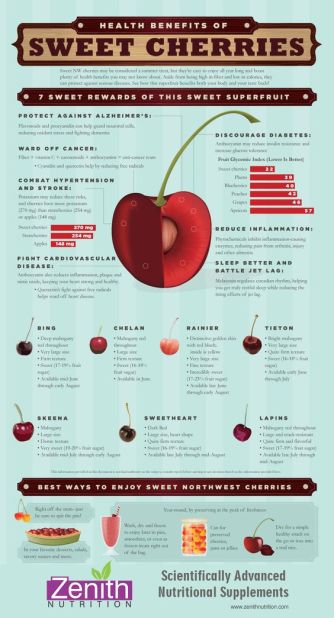 Bing Cherries
Bing Cherries
Cherry’s are a member of the Rose family. There are more than 900 cherry varieties. This variety is the best known sweet cherry. Its purple-red flesh and deep red skin is close to black when fully ripe. Bing cherries are the most popular and sought after cherry in all of North America. They were first cultivated in Oregon in the 1870s by a man named Seth Lewelling. However, he had a foreman whose name was Bing, who is thought to have been the one who actually cultivated and turned this popular fruit into what it is today.
All it takes is one bite into just one of these delicious little fruits, and it is hard not to finish off the whole bag pretty rapidly. The Bing is available from the end of May until early August. This happens to be one of Les’s favorite fruits.
Here is a link to the chart that I have posted for a larger version. Please click here: Bing Cherries
1. Protects against Alzheimer’s
Antioxidants in cherries protect cells from damaging molecules called free radicals — they may be useful in the battle against Alzheimer’s by preventing the toxic amaloid plaque, that causes the disease, from forming.
2. Cancer-Preventive Compounds
Sweet cherries contain fiber, vitamin C, carotenoids, and anthocyanins, a unique set of antioxidants which are deep red-almost black color pigments. These promote reduction from the risk of cancer cells forming, which may help play a role in cancer prevention. A study using human cancer cell lines demonstrated the cell cycle stopped the mutating cells when exposed to cherry anthocyanins.
3. Lower Risk of Stroke
Cherries may activate receptors in your body’s tissues, which help regulate genes involved in fat and glucose metabolism. This activation may help to lower your risk of heart disease. In turn, Cherries may combat hypertension and stroke, fight cardiovascular disease, and discourage diabetes,
4. Reduce Inflammation and Your Risk of Gout
Cherries are such powerful medicine for gout and arthritis, fibromyalgia, or painful muscle-related sports injuries. Uric acid forms crystals in your joints and creates stiffness, swelling and inflammation. Cherriesalso protect the beneficial collagen in the joint from the uric acid thus helping in the fitness of joints. Eating just a few, six to eight cherries every a day keeps uric acid levels in check, preventing any recurrence of gout. Those who ate more cherries, up to three servings in two days, had an even lower, 50 percent reduction in risk. You can also drink your cherries just make sure it is 100% Cherry juice.
The Bear Fruit Bar (www.MorFoods.com) is also a great source of not only cherry concentrates, but other potent fruits as well.
5. Reduce Post-Exercise Muscle Pain
Athletes experience less pain. The anti-inflammatory compounds in cherries may have a protective effects in reducing muscle damage and pain during strenuous exercise.
6. Support Healthy Sleep (Melatonin)
Cherries contain natural melatonin, a powerful antioxidant, has a calming effect on brain neurons and the nervous system, soothing irritability, insomnia, headaches, and even helping to establish regular sleep patterns. It helps “cool down” excess inflammation and associated oxidative stress. Other inflammatory issues include arthritis pain relief. It also plays a vital role in better sleep, battle jet lag, and body regeneration.
7. Good for the heart and blood pressure
Sweet cherries are a good source of several minerals, such as potassium which is good for heart and blood pressure. Cherries also contain iron, zinc, copper, and manganese.
8. Bing Cherries provide approximately 2.6g of fiber per cup.
Fiber is vital in controlling appetite and keeping regular.
Sources:
http://foodfacts.mercola.com/sweet-cherries.html
http://www.naturalnews.com/026091_cherries_gout.html#ixzz4FZW1dJdu
Benefits Of Bing Cherries | Benefits Of http://benefitof.net/benefits-of-bing-cherries/#ixzz4FS2MP2CL
http://www.cherrieshealthbenefits.com/bing-cherries.shtml
Suggested Reading:
Eat and Heal (Foods That Can Prevent or Cure Many Common Ailments) by the Editors of FC&A Medical Publishing
Please visit Catherine’s Pinterest boards by clicking this link: Catherine’s Place. There, you will find a variety of healthy sources, natural solutions, recipes, God’s Creation, and SO MUCH MORE. Grab yourself a healthy snack, make yourself comfortable, and take time to browse the wealth of information and be not only inspired but uplifted.
June, 2016, LWC DeRoos Drumbeat – COMING SOON
May, 2016, LWC DeRoos Drumbeat – COMING SOON
April, 2016, LWC DeRoos Drumbeat
 Strawberries
Strawberries
This heart-shaped berry has been said to signify purity, passion, and healing. A close relative to the rose, this unique berry is the only fruit that carries it’s seeds outside. The ancient Romans believed that strawberries could soothe melancholy, fever, inflammation, throat infection, kidney stones, & many other diseases. But researchers have recently ranked strawberries as one of the 50 best antioxidant sources among commonly eaten foods. The following health benefits of strawberries will motivate you to grow your own strawberry forever: Here is a link to get your own organic seed for your garden.1. Blood Sugar Benefits: Several recent studies have found regular intake of strawberries to be associated with decreased risk of type 2 diabetes. In these studies, significant benefits do not emerge until frequency of intake reaches at least 2-3 strawberry servings per week.
2. Anti-Cancer Benefit: Strawberries are best documented in the case of breast, cervical, colon, and esophageal cancer (Esophageal Cancer: Research shows that within six months, drinking water mixed with freeze-dried strawberry powder has been able to significantly reduce 80% of developing cancer cells within the esophagus’s of rats, and is projected to have consistent results in human esophageal cancer as well.)
3. Combat Arthritis and Gout: Filled with antioxidants and detoxifying agents, strawberries can efficiently aid to eradicate inflammation and pain associated with diseases such as arthritis and gout forever. A recent study depicted that women who ate 16 or more strawberries per week had much lower inflammation levels. They were also 14% less likely to have elevated levels of C-reactive protein (CRP) within their blood, which indicates high inflammation.
4. Healthy Digestion & Stored Fat Burning: Since they are filled with fiber, strawberries maintain regularity and cleanse the intestines. The red-hue in strawberries causes stored fat to be burned much quicker. Nitrate, in strawberries, encourages oxygen and the flow of blood within the body; this in turn inspires weight loss.
5. Packed With Folic Acid: These super berries provide your body with folate. Without a sufficient amount of this B vitamin, you may be susceptible to conditions such as vascular disease, atherosclerosis, and a decline in cognitive function.
6. Promote Bone Health: Strawberries contain potassium, magnesium, vitamin K which are important for strengthening your bones.
7. Lower Cardiovascular Disease: Flavonoids (yellow pigments) lower LDL cholesterol and therefore reduce our risk of for heart disease and hypertension. Three or more servings of strawberries were able to decrease their risk of a heart attack by 32%.
8. Huge Immune System Boost: Strawberries have a surplus of Vitamin C (about 113% of recommended daily intake) which is more than enough of what your body needs to reap the benefits. Consuming Vitamin C during stressful situations actually has the ability to decrease blood pressure to a normal level, preventing the development of hypertension.
9. Increase Brain Function: Free radicals are to blame specifically to cause brain tissue to decline and neurotransmitters to become much weaker. Strawberries high in Vitamin C and phytonutrients counteract some of these conditions when consumed regularly. Iodine, another nutrient strawberry is abundant in, maintains proper nervous system and brain function. Anthocyanins also have the ability to improve short-term memory drastically.
10. Wrinkle Eliminator: Along with biotin, necessary in maintaining durable hair and nails, strawberries contain an acid which defends the flexible fibers in our skin and allows it to appear youthful.
11. Battle High Blood Pressure: Potassium and magnesium efficiently reduce high blood pressure, which can be spiked by sodium intake among other risk factors such as diet. Consuming strawberries regularly helps prevent hypertension, and also maintains healthy oxygen levels by enabling consistent blood flow throughout the body.
12. Diuretic: The strawberry fruit is considered to have cooling, calming, and diuretic properties. Strawberry fruits and leaves are used to treat urinary tract disorders. Yes, you can eat the leaves.TIPS: 1) Wait to clean them until you are ready to eat them, rinsing them speeds up spoiling. 2) two days is the maximal time for strawberry storage without major loss of vitamin C and polyphenol antioxidants that stabilize oxidative stress. 3) The leaves and stem part of the strawberry contain benefits that are good for your health. One of the benefits of strawberry leaves is that they are a natural digestive aid.
March, 2016, LWC DeRoos Drumbeat
 CHOCOLATE (Cacao “kuh-KOW”)
CHOCOLATE (Cacao “kuh-KOW”)
Chocolate is made from cacao beans, which are grown in tropical regions in west Africa, Central and South America, and in parts of southeast Asia.
Chocolate is possibly the worlds most popular food, has been the number one food across the ages dating back 3500 – 4000 years ago. Perhaps because chocolate is the love, feel good food worldwide. But not every chocolate bar will pass the test. This information doesn’t mean that you should eat a pound of chocolate a day.
 Willy Wanka’s “golden ticket” of prosperity was not the first “golden ticket”. People groups have used chocolate as “gold” for trading. Does money grow on trees? They would probably say, “Yes”. Chocolate is possibly the number one cash crop in the world today.
Willy Wanka’s “golden ticket” of prosperity was not the first “golden ticket”. People groups have used chocolate as “gold” for trading. Does money grow on trees? They would probably say, “Yes”. Chocolate is possibly the number one cash crop in the world today.
Let’s take a look why this bean is so prized.
 Tooth Health ~ Imagine using Chocolate to remineralize tooth enamel while discouraging cavities. Sound too good to be true? A researcher at Tulane University has come close with a non-toxic Chocolate extract that outperforms fluoride. Learn more at Natural News.
Tooth Health ~ Imagine using Chocolate to remineralize tooth enamel while discouraging cavities. Sound too good to be true? A researcher at Tulane University has come close with a non-toxic Chocolate extract that outperforms fluoride. Learn more at Natural News.
Lower Stress Levels ~ Chocolate nourishes the brain with the endorphin anandamide and helps keep natural endorphins in your blood longer
Cough Cure ~ Dark Chocolate acts as a natural cough suppressantaccording to some sources. Theobromine minimizes activity in the vagus nerve that is responsible for persistent coughs. For the same reason, chocolate has been shown to be three times more effective than asthma medications.
Intelligence Boost ~ Dark Chocolate helps increase blood flow into and out of the brain and reduce stress. This makes a person better able to focus, problem solve, and stay on task. Feeling bogged down? Have some dark Chocolate and balance certain hormones in the body.
 Mood Lift and Stress Reduction ~ Chocolate contains moremagnesium than any other food. In Chocolate are all natural mood lifters because they reduce the stress response. There are even Chocolates designed to help control stress. Serotonin acts as an anti-depressant. Bliss and love chemicals (Thenefolamines) are found in Chocolate.
Mood Lift and Stress Reduction ~ Chocolate contains moremagnesium than any other food. In Chocolate are all natural mood lifters because they reduce the stress response. There are even Chocolates designed to help control stress. Serotonin acts as an anti-depressant. Bliss and love chemicals (Thenefolamines) are found in Chocolate.
Increases Blood Flow ~ Cacao is good for the heart because of its natural blood thinning and anti-blood clotting properties. It helps a person’s blood move throughout the body easier and also contributes to building healthy blood. Chocolate is the highest source of Manganese, Iron, Chromium…for blood building, stable blood sugar.
Nervous System ~ Rich in Phospherous (for bone), Zinc, and Copper all for nervous system,
Heart Health ~ Dark Chocolate is good for your heart. A small bar of it everyday can help keep your heart and cardiovascular system running well.
Live Longer ~ Chocolate is the greatest longevity food known due to it being the highest antioxidant food in the world. Chocolate and longevity.
Rejoice Chocolate lovers, you can have that extra piece – BUT make sure it’s of the dark kind.
Chocolate Tip 1 – Balance the Calories:
Chocolate is still a high-calorie, high-fat food. If you eat half a bar of chocolate a day, you must balance those 200 calories by eating less of something else. Cut out other sweets or snacks and replace them with Chocolate to keep your total calories the same.
Chocolate Tip 2 – Go for Dark Chocolate:
Dark chocolate has far more antioxidants than milk or white chocolate.
Chocolate Tip 4 – Skip the Nougat:
Avoid anything with caramel, nougat or other fillings. These fillings are just adding sugar and fat whicherase many of the benefits you get from eating the Chocolate.
Chocolate Tip 5 – Avoid Milk:
It may taste good but some research shows that washing your Chocolate down with a glass of milk could prevent the antioxidants from being absorbed or used by your body.
Nutella Recipes:
3 Recipes with only 3 ingredients each at Fablunch
February, 2016, LWC DeRoos Drumbeat
 ASPARAGUS
ASPARAGUS
Kidney Stone: Asparagus is one of the best natural treatments for kidney stone. Asparagus is very effective against which can cause uric acid kidney stones. It breaks up uric acid making it excellent for gout and kidney stones. Asparagus juice is also contains the anti cancer properties. Drinking Asparagus juice daily eliminates the kidney stone, breaking down hard to flush out kidney stones. After consuming Asparagus, many people notice that their urine has a distinctly different odor. Place about six to eight ounces of Asparagus in a blender and drink, then wait for few minutes (a diuretic agent). Or, drink enough water and remember to increase your water intake whenever you increase your activity, and when you’re in a warmer climate.
Diabetes: In a research reported in 2012 in the British Journal of Nutrition which suggest that regular intake of Asparagus can help to keep blood sugar in control with its very low glycemic index making it a great addition for anyone who wants to reduce spikes in the blood sugar levels and increase insulin production.
Heart disease: Asparagus contains soluble fiber and fiber is effective against degenerative heart diseases. Asparagus contains highest amount of potassium and Vitamin B which may help to control our blood pressure. Vitamin B can help to regulate amino acid that can be a precursor to heart diseases and stroke.
Cancer: Asparagus is amazing food and it contains the minerals and vitamins that may protect us against cancer. Amino acids found in Asparagus are very effective in fighting cancer.Asparagus is a source of antioxidants, and it contains a group of substances collectively known for their anti inflammatory effect. According to the research these two factors reduce stress and prevent cancer.
During Pregnancy: Asparagus five spears give you 100 mcg of folate, and folate is very useful for men and women both. Folate is very useful for women who are pregnant, having the risk of Spina Bifida. Folate helps to regulate embryonic and fetal nerve cell formation and help to prevent premature birth. According to the research folate can increase sperm count in men who suffering with fertility. Folate has been found to help with cell regeneration and reduce the risk of developing Alzheimer’s disease.
Keep things regular with Asparagus. High in both fiber and water content, Asparagus can aid in preventing constipation, ensuring that the body is able to effectively remove toxins before they accumulate. Half a cup of Asparagus tips provides close to two grams per serving.
Improves digestive health. Asparagus contains an unusual carbohydrate called inulin, which, unlike most carbs, does not break down in the first parts of the digestive tract. Rather, it’s not until it reaches the large intestine that it gets digested, making it the perfect food source for certain bacteria, which in turn helps with nutrient absorption, reduced colon cancer risk and allergy relief.
Better eye and skin health. Asparagus contains vitamin A, which is not only known to boost eye health, but to improve skin, lung, and intestinal tissue lining. Vitamin C also supports immune health, while being a strong antioxidant at the same time. A cup of raw Asparagus tips has about 7.5 mg of vitamin C
Better bone health, wound healing. Asparagus is very rich in vitamin K, which has been linked to helping prevent osteoporosis. Additionally, it’s helpful when it comes to assisting with blood clotting, so it’s also effective in helping wounds heal.
January, 2016, LWC DeRoos Drumbeat
 Okra
Okra
Okra is a vegetable that is eaten all over the world. But for some, its slimy texture can make it somewhat unpalatable. Here are a few health benefits to encourage you to eat of its slimy goodness.
Kidneys
According to a study published in the Jilin Medical Journal in the year 2005, people who consume okra showed improvement in kidney disease, saw a reduction in rhine protein and uric acid.
Liver
In 2011, a study was published in the Saudi Pharmaceutical Journal stating okra’s ability to protect against liver disease against chemically induce liver damage because of it antioxidant activities.
Diabetes
Researchers published in the Journal of Pharmacy & Bioallied Sciences, saw a decrease in the blood sugar levels of their lipid profiles levels. Traditionally, okra has been used as an alternative treatment for diabetes.
Cancer
A new study shows okra’s ability as a cancer fighter. Researchers discovered lectin (a type of protein that can bind to cell membranes) in okra. It actually induces cell death in human breast cancer cells.
Depression
Okra helps to fight off depression therefore elevating the mood.
With all these possible health benefits, one would almost be crazy not to give Okra a chance.
December, 2015, LWC DeRoos Drumbeat
 Celery
Celery
Celery was originally used for medicinal purposes to treat many ailments, including colds, flu, digestion, water retention, and more, and also used as a flavoring herb,
Celery also contains minerals such as calcium, sodium, copper, magnesium, iron, zinc, potassium. It contains fatty acids and vitamins including vitamin A, C, E, D, B6, B12 and vitamin K. It also contains thiamin, riboflavin, folic acid and fiber.
Celery helps lower cholesterol by regulating lipid levels
Celery lowers Inflammation
Celery helps prevent high blood pressure by lowering stress hormones in your blood. This allows your blood vessels to expand and make more room for the blood to flow. Sodium and potassium regulates fluid balance reducing blood pressure.
Celery helps prevent Ulcers by a plant chemical that protects the lining of the digestive tract.
Celery protects liver health by reducing dangerous fat-build up in the liver.
Celery has an antibacterial property effect that fight infections.
Celery helps reduce uric acid and stimulate urine production beneficial for helping prevent bladder disorders, urinary tract infections, kidney problems and cysts on reproductive organs.
Celery contains chemo-protective compounds that reduce toxicity that fight against cancer especially breast cancer, intestinal cancer, and leukemia.
Celery’s high calcium helps calm nerves.
Celery is 95% water.
Even though celery is around 95% water, this mighty green stalk contains two anti-cancer compounds: apigenin and luteolin.
Research reports in the well-respected Journal of Clinical Biochemistry and Nutrition found that apigenin was effective at causing apoptosis (cell suicide) in numerous types of cancer cells — particularly human breast cancer cells. Research from China suggests that eating two stalks of celery 2-3 times a week can reduce your risk of lung cancer by 60%.
November, 2015, LWC DeRoos Drumbeat
Cilantro
 Cilantro is one herb with fantastic flavor. Ancient Greece used cilantro essential oil as a component of perfume. In medieval times, the Romans used it to cover up the smell of rotten meat. Today, Cilantro is best known for how well it detoxifies the human body from Toxic Metal Cleansing.
Cilantro is one herb with fantastic flavor. Ancient Greece used cilantro essential oil as a component of perfume. In medieval times, the Romans used it to cover up the smell of rotten meat. Today, Cilantro is best known for how well it detoxifies the human body from Toxic Metal Cleansing.
3. Cilantro has a rich and strong antioxidant activity. The primary job of antioxidants is to protect your cells against the oxidative stress neutralizing the effects caused by free radicals the primary cause of aging and other types of degenerative diseases such as cancer, heart disease, diabetes, arthritis, macular degeneration, Alzheimer’s disease, and many more.)
Each antioxidant has its own specific characteristics and benefits, so getting the widest variety of antioxidants is very important. In other words, eating the right foods can keep you young and disease-free longer both inside and outside. It has also been shown to be an anxiety reducer.
- It has been shown, after long-term use, to remove mercury from tissue. There are very few herbs that can remove heavy metals from the body, and cilantro is one of them.
- (potassium) crucial to heart function and plays a key role in skeletal and smooth muscle contraction and nerve impulse transmission
- (calcium) help regulate heart rate and blood pressure
- (manganese) helps in bone development, wound healing, metabolism, helps the body form connective tissue, blood clotting
- (Iron) Helps prevent anemia by building up blood supplies.
- (magnesium) synthesis of proteins, bone structure, helps cells communicate in many physiological processes
- (Vitamin A) Helps with macular degeneration, red eyes and eye disorders.
- (Vitamin C)Helps stave off infections and urinary tract infections.
- (Vitamin K) plays the strongest roles in bone health, and cilantro is one of the richest herbs in this vitamin.
- Niacin (B3) Helps improve cholesterol levels
- Folate (B9) Critical for metabolism, normal nerve development and proper brain function.
- Riboflavin (B2) helps metabolize B6, B9, B3, and Iron and more. If you suffer from migraines Riboflavin has been known to decrease their frequency.
October, 2015, LWC DeRoos Drumbeat
 Parsley
Parsley
Not Just for Garnishing
Parsley can provide much more than a decoration on your plate. Parsley was used medicinally prior to being consumed as a food in the Mediterranean for 2,000 years before it was used for food.
Immune Booster
Vitamin C has many different functions. Its powerful anti-inflammatory agent, usefulness in conditions such as osteoarthritis and rheumatoid arthritis, and needed for the healthy function of the immune system. It may also be helpful in reducing the severity of asthma, osteoarthritis, and rheumatoid arthritis. Vitamin C improves iron absorption.
Important antioxidant
Vitamin A ~ helps reduce the risk for the development and progression of conditions like atherosclerosis, diabetes, and colon cancer. It is a nutrient so important to a strong immune system that its nickname is the “anti-infective vitamin.”
Cancer prevention
Folate is vitally important for cancer-prevention or inhibiting tumors due to high levels of anti-inflammatory compounds and is therefore important for cancer-prevention areas of the body that contain rapidly dividing cells such as the colon and the cervix.
Heart Health
Vitamin B ~ reduces blood vessel damage lowering the risk of stroke, heart attack and atherosclerosis (thickening of artery walls).
Vitamin K ~ just 10 sprigs) improves bone health and improves calcium absorption.
it is important that you do not suddenly begin to eat more foods containing vitamin K,
which plays a large role in blood clotting.
Fight bad breath
Parsley is chock full of chlorophyll, which has antibacterial properties. That is why people eat the parsley sprig from their plates after a meal. It fights oral bacteria that causes bad breath.
Cleansing Effect
Parsley works as a natural diuretic. It increases urine flow to remove infection-causing bacteria from the urinary tract. At the same time it helps your body flush out more toxins such as heavy metals and it prevents the formation of kidney stones.
Wound Healing
An essential amino acid found in parsley is needed to repair damaged tissues. Parsley juice works wonders to speed up wound healing after surgery.
Soothes Irritated Skin:
Rub dried or fresh parsley leaves on irritated skin or insect bites to soothe skin irritation. When dealing with boils, boil parsley leaves in water and apply it on the affected areas for a few hours. It also helps to fade freckles and spots.
September, 2015, LWC DeRoos Drumbeat
 Watermelon
Watermelon
Conventionally grown Watermelons are not among the dirty dozen of the most heavily sprayed produce. Instead, they are actually among the fifteen most clean of non-organic fruits and vegetables. Other good news is that Watermelons don’t lose as much nutritional value cut and stored in the fridge as most other produce.
• Watermelon is rich in electrolytes and water content, melons are nature’s gift to beat tropical summer thirst.
• Watermelon are very low in calories (just 30 calories per 100 g) They are plentiful in
numerous health promoting phyto-nutrients and anti-oxidants essential for optimum
health.
• Watermelon is an excellent source of Vitamin-A.
…Both beta carotene with vitamin A help support good eyesight and prevent glaucoma.
…Vitamin-A is also required for maintaining healthy mucosa and skin.
…Vitamin A is known to protect from lung and oral cavity cancers.
• Watermelon is rich anti-oxidants. These antioxidants have been found to offer protection against colon, prostate, breast, endometrial, lung, and pancreatic cancers. Phyto-chemicals present in watermelon have the ability to help protect cells and other structures in the body from oxygen-free radicals.
• Watermelon is an excellent source of lycopene, are surprisingly superior to raw red tomatoes Studies suggest that lycopene offers certain protection to skin against harmful UV rays.
• Watermelon offer an abundant source of minerals potassium and magnesium. Potassium is important for cardiovascular health, brain health, helps the kidneys eliminate kidney stone forming calcium as well as assists with the body’s fluid retention that helps control heart rate and blood pressure. Therefore it offers protection against stroke and coronary heart diseases.
• Watermelon contains a surprise nutrient vitamin B, especially B1 (thiamine)important for maintaining electrolytes and nervous system signal transmissions and B6(pyridoxine) for enzymatic functions that convert food into cellular energy. It is also an excellent source of Vitamin C, which is a major antioxidant.
Make sure you find the watermelons with the black seeds. Don’t throw out the seeds. They are protein-packed treasures. They’re also packed with protein, vitamin B, magnesium, and monounsaturated fats and polyunsaturated fats, which have been shown to reduce cholesterol levels, inflammation and risk for heart disease and stroke.
RINSE food thoroughly and drain. Soak the seeds overnight, then roast them in the oven. They make a great snack.
August, 2015, LWC DeRoos Drumbeat
 Sugar Snap Peas
Sugar Snap Peas
We don’t usually think about green peas as an exotic food in terms of nutrient composition—but we should. They also contain a unique assortment of health-protective phyto-nutrients.
Peas are really little powerhouses of nutrition that are a great for your health.
1. Weight Management:
Peas are low fat but high everything else. A cup of peas has less than 100 calories but lots of protein, fiber and micro-nutrients.
2. Stomach cancer prevention:
Peas contain high amounts of a protective nutrient that works to prevent stomach cancer. You only need 2
milligrams per day of this phyto-nutrient to prevent stomach cancer. A cup of peas has at least 10.
3. Anti-aging, strong immune system, and high energy:
Peas contain high levels of anti-oxidants
4. Prevention of wrinkles, Alzheimer’s, arthritis, bronchitis, osteoporosis and candida
Peas contain strong anti-inflammatory properties. Excess inflammation has also been linked to,
heart disease, cancer, and aging in general.
• Vitamin C and vitamin E, and a good amount of the antioxidant mineral zinc
• Omega-3 fat in the form of alpha-linolenic acid (ALA).
5. Blood sugar regulation:
High fiber and protein slows down and regulates the pace of how fast sugars are digested.
The anti-oxidants and anti-inflammatory prevent or reverse insulin resistance (type 2 diabetes)
All carbohydrates are natural sugars and starches with no white sugars or chemicals to worry about.
6. Heart disease prevention:
The many antioxidant and anti-inflammatory compounds support healthy blood vessels. The formation
of plaque along our blood vessel walls starts with chronic, excessive oxidative stress and inflammation.
The generous amounts of vitamin B1 and folate, B2, B3, and B6 reduce the risk factor for heart disease.
7. Healthy for the environment:
• Peas work with bacteria in the soil to ‘fix’ nitrogen from the air and deposit it in
the soil. This reduces the need for artificial fertilizers since one of their main
ingredients is nitrogen.
• After peas have been harvested the remaining plant easily breaks down to
create more organic fertilizer for the soil.
• Peas are also able to grow on minimal moisture so they are a perfect crop in
many areas not needing irrigation or using up valuable water supplies.
8. Prevent constipation:
The high fiber content in peas improves bowel health and peristalsis.
9. Healthy bones
Just one cup of peas contain 44% of your Vitamin K which helps to anchor calcium inside the bones. It’s B
vitamins also help to prevent osteoporosis.
10. Reduces bad cholesterol:
The niacin in peas helps reduce, the production of triglycerides and VLDL (very low-density lipoprotein,
which results in less bad cholesterol, increased HDL (“good”) cholesterol, and lowered triglycerides.
July, 2015, LWC DeRoos Drumbeat – COMING SOON
June, 2015, LWC DeRoos Drumbeat – COMING SOON
May, 2015, LWC DeRoos Drumbeat
TOMATOES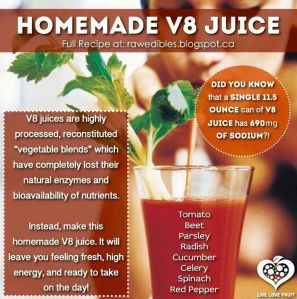
Have you had your V8 today?
No, I do not mean the processed V8 you find ready to drink. (Why? See illustration)
Botanically speaking (Lycopersicon esculentum), the tomato is not only a fruit, but also a berry. The French sometimes refer to the tomato as pomme d’amour, meaning “love apple.”
Anti-oxidant: Tomatoes contain a lot of vitamins A and C, mostly because of beta-carotene, and these vitamins act as anti-oxidants, working to neutralize dangerous free radicals in the blood stream. Specific antioxidant protection is found in tomatoes of the bones, liver, kidneys, and bloodstream. The more red the more beta-carotene. And remember cooking destroys much of the Vitamin C because it is very sensitive to heat.
Diabetes: Tomatoes also have plenty of the mineral chromium, which helps diabetics to keep their blood sugar level under control.
Smoking: Tomatoes contain acids, which help to fight against and reduce the damage brought about by cigarette smoke.
Vision: Because of all the vitamin A, tomatoes are also an excellent food to help improve your vision, even night vision.
Heart troubles: Due to potassium and vitamin B, tomatoes help to lower blood pressure and to lower high cholesterol levels. This, in turn, could help prevent strokes, heart attack and other potentially life-threatening heart problems. Tomatoes do resemble the heart having four chambers.
Skin care: Because of vitamin A and high amounts of lycopene, a substance found in many of the more expensive over-the-counter facial cleansers, tomatoes are great for skin care. Collagen, our skins support system, is reliant on Vitamin C as an essential nutrient that works in our bodies as an antioxidant to help prevent damage caused by the sun, pollution and smoke, smooth wrinkles and improve overall skin texture.
Cancer: Various studies have shown the lycopene in tomatoes, the red reduces chances of prostate cancer in men, stomach cancer and colorectal cancer. Lycopene, considered a natural miracle anti-oxidant, may help to stop the growth of cancer cells. Cooked tomatoes produce more lycopene than do raw tomatoes, so enjoy that tomato soup!
Bones: Tomatoes have a fair amount of vitamin K and calcium, both of which help to strengthen and possibly repair in minor ways bones and bone tissue.
Constipation: Eating foods that are high in water content and fiber like tomatoes can help to keep you hydrated and your bowel movements regular. Fiber is essential for minimizing constipation by adding bulk to the stool.
WARNING: Are you sensitive to nightshades, such as Tomato, Eggplant, Potatoes, and Peppers? Try eliminating all nightshades for a week and then intentionally try one (such as a tomato) each day for 3 days and see if you notice more inflammation. Do this with each type of nightshade to see how you are reacting to each individual member of this family; your body may become less sensitive.
V8 Recipe: (base the recipe by your own taste – for example some people prefer more tomatoes in their REAL V8 juice where others may prefer more celery or carrots or whatever you have on hand.) -6 tomatoes – 1 bunch parsley – 3-4 radishes – 1 cucumber -1 beet – 4 stalks celery – 1 red pepper – 1 cup spinach – 1-2 lemons (optional, for those who enjoy a bit of kick)
April, 2015, LWC DeRoos Drumbeat
Garlic
The Stinking Rose
 Garlic is even known as “the king of all vegetable plants”. As you read further, you will see why.
Garlic is even known as “the king of all vegetable plants”. As you read further, you will see why.
Garlic is well-known and has been one of the most important medicines in the East and West for over 5,000 years. It is known for its medicinal action and uses in so many ways. Have you heard of this old folk tale that states: “Eat onions in March and garlic in May, then the rest of the year, your doctor can play.”
- Immune System – Garlic stimulates white blood cells so our bodies can fight disease. It inhibits growth of bacteria (23 kinds) as well as fungus and yeast (60 types) Its effectiveness against skin infections like boils.
- Garlic keeps blood vessels healthy Lowers cholesterol and reduces blood pressure. Minimize heart ailments and strokes.
- Garlic protects against cell damage It helps restore memory. It can extend life expectancy.
- Garlic helps Detoxify Heavy Metals in the Body It is a natural penicillin
- Garlic may Improve Bone Health
- Garlic‘s anesthetic benefits can serve as a topical antibiotic to remove the bacterial growth and minimize inflammation.
When you get a chance, listen to this godly lady, Barbara O’Neill, share some of her valuable tips:
Body Science & Nutrition Discovering Good Health: “Poultices and Their Applications” (Complete) PBMC – YouTube
March, 2015, LWC DeRoos Drumbeat
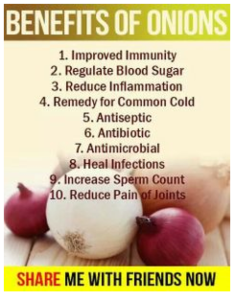 Onions
Onions
The onion has layers on health benefits.
Heart health: natural blood thinner and lower blood pressure. Onions may prevent plaque build-up in arteries, heart attacks, and strokes.
Anti-inflammatory: relaxes the airway muscles and helps relieve those who suffer with asthma and those who deal with rheumatoid arthritis.
Immune system: onion’s antioxidants help encourage a strong immune system. Onions also reduce allergic reactions.
Anti-Cancer: inhibit cancer cells in “breast, colon, prostate, ovarian, endometrial, and lung tumors.”
Digestion: Helps keep you regular. Onions contain a special type of soluble fiber which promotes good bacteria growth in your intestines, and may help reduce the risk of developing gastric ulcers.
Regulating blood sugar: The sulfur in onions helps lower blood sugar by triggering increased insulin production.
Bone density in older women: Lowers risk of hip fracture.
REDUCE THE TEARS:
First chill the onions for 30 minutes. Then, cut off the top and peel the outer layers leaving the root end intact.
CAUTIONS:
Green onions may interfere with blood thinning drugs.
Onions are a huge magnet for bacteria, especially uncooked onions. You should never plan to keep a portion of a sliced onion. It’s not even safe if you put it in a zip-lock bag and put it in your refrigerator. It’s already contaminated enough just by being cut open and out for a bit. Because they are a magnet for bacteria, they make a good poultice for bacterial infections.
February, 2015, LWC DeRoos Drumbeat
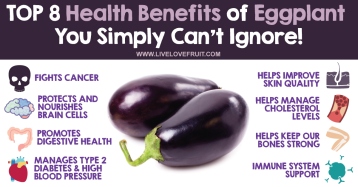 Eggplant
Eggplant
This beautiful vegetable is one of the most popular vegetables in Nigeria and Haiti. Nigerians have a whitish egg size variety that they use as a welcoming treat for visitors who come to their homes and serve it with spicy peanut butter. It is a relative to tomatoes and potatoes.
Although Eggplant has a long and rich history, eggplant did not always hold the revered place in food culture. For centuries after its introduction into Europe, eggplant was used more as a decorative garden plant than as a food and long prized for its outward beauty, but take a look at its beautiful nutritional profile.
…High in fiber
…Known for its strong antioxidant properties
…Lowers LDL (“bad” cholesterol)
…Fights the free radicals that cause cancer
…Has antiviral properties which can help treat and prevent diseases causes by viruses
…Contains many vitamins, but its dominant vitamins are vitamin C, folate, B vitamins, and vitamin A
…It boosts the immune system
…It also contains a large quantity of minerals such as copper, manganese phosphorous, calcium, magnesium, and potassium
…These minerals help prevent health problems such as arthritis, osteoporosis, and heart disease…
…Eggplant is also a great source of dietary fiber. Dietary fiber protects against colon cancer, keeps the digestive system working properly, and keeps the stomach feeling full after a meal
Its unique taste and texture fulfills the role of being a complementary ingredient that balances the surrounding flavors. We have included a recipe that you may have heard of in the famous “Ratatouille” movie here.
January, 2015, LWC DeRoos Drumbeat
AVOCADOS
The earliest known written use in English is attested from 1697 as “avogato pear”, a term which was later corrupted as “alligator pear”. Because the word avogato sounded like “advocate”, several languages reinterpreted it to have that meaning. An interest history tell’s us that from the Spanish aguacate, the Nahuatl [ˈnaːwatɬ], known historically as Aztec sometimes used the word with the meaning “testicle”. It is known as “butter fruit” in parts of India.
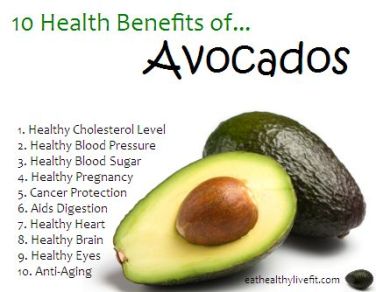
…Have the highest protein content of any fruit
…Help the health and function of the womb and cervix (it takes 9 months for an avocado to grow)
…Bone Health (Vitamin K)
…Skin Benefits (Vitamins B, C, & E, folate)
…Avoid retinopathy with Vitamin E
…Contain 20 essential vitamins and minerals
…Anti-inflammatory benefits reduce Arthritis pain. Phytonutrient polyphenols and flavonoids found in avocados are anti-inflammatories. Inflammation is considered the basis of most non-contagious diseases, which can also fight Alzheimer’s.
…Iron transports oxygen & healthy skin, hair, nails
…Magnesium one of the most important but overlooked minerals, helps digest protein, carbs, and fats, building block for RNA & DNA synthesis. If you have too much calcium and not enough magnesium, your muscles will tend to go into spasm. This has consequences for your heart.
…Twice the potassium (helps balance potassium to sodium rate) of a Banana.
…Provides for a healthy heart with its good mono saturated fat. The so-called “good fat,” avocados have become the darling of nutritionists. As a monounsaturated fat, the avocado can lower blood pressure and increase blood flow — two factors that can reduce a person’s risk for cognitive decline. Monounsaturated fats can also prevent insulin resistance and fight type 2 diabetes, another risk factor for Alzheimer’s. Avocados are almost as good as blueberries in promoting brain health. They don’t get their due.
…Avocados have a high amount of potassium, omega-3s, and oleic acid, can reduce blood pressure and a lower blood pressure has been shown to be beneficial for brain health, which has been shown to prevent and slow Alzheimer’s.
They may even be a better standard-bearer than the apple for the wisdom of one a day to keep the doctor away.
…Maintains cholesterol levels already in healthy range. Free of cholesterol themselves, they help lower bad cholesterol
…Help body efficiently absorb fat soluble nutrients
…Insoluble and soluble fiber (reduce your chance of getting colorectal cancer)
…Reverses symptoms of Alzheimer’s in the early stages. Vitamin K improves blood flow, decreases risk of stroke and may also help to prevent Alzheimer’s.
…Boost serotonin level’s which relieves depression
The Spanish Guacamole or the Nahuatl Aztecs as in ahuacamolli, means avocado soup or sauce.
Mashed avocado with salt, lime, garlic and cilantro — and chiles and tomatoes, depending on the recipe.
Avocado’s make a great first food for infants, spoonfuls of avocado straight from the skin: the perfect baby health food.
Helpful tips:
…The pit prevents browning.
…Have extra avocados? Freeze them. Cut the avocados in half lengthwise and remove the pit. Wrap them tightly in plastic wrap or a vacuum sealer, then place them in a freezer bag. When you’re ready, let them defrost in the fridge.
Sources:
https://www.webmd.com/diet/features/eat-smart-healthier-brain#1
December, 2014, LWC DeRoos Drumbeat
The Pomegranate
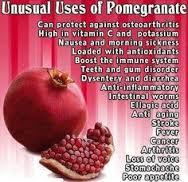 The Chinese “jewel of the winter”
The Chinese “jewel of the winter”
The word “pomegranate” is from the Latin “pomum granatum” which means “apple of many seeds.”
- The pomegranate is categorized as a super fruit because of its nutritional properties.
- This jewel is completely loaded with vitamins C, A, K, and B5, as well as vitamin B complex compounds.
- Tons of minerals including calcium, potassium, copper, and manganese that offer nourishment for superior health.
- It is thought that pomegranates contain more antioxidants than green tea or red wine.
- The pomegranate contains an antioxidant that has been found to improve dental health. This antioxidant vigorously attacks bacteria that can lead to gum disease.
- Everyday consumption of pomegranate juice diminishes the thickness of fat growth on arteries. Therefore it facilitates combating cardiovascular disorders.
- A compound that reduces nerve inflammation that may delay the possibility of developing Alzheimer’s disease and reduces inflammation associated with Parkinson’s disease and rheumatoid arthritis.
- High in fiber.
- Plus so much more
The season for these jewels in the Northern Hemisphere is from September to February. Don’t miss out on this beautiful jewel of the winter.
Here is a video tip on how to prepare the Pomegranate: Pomegranate Tips
November, 2014, LWC DeRoos Drumbeat
BROCCOLI
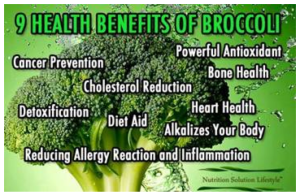
1. Cancer prevention: Broccoli has cancer fighting, immune boosting properties. A combination of anti-flammatory, antioxidant and detoxification properties, work together in cancer prevention. Research is strongest showing a decrease in prostate cancer, colon cancer, bladder cancer and ovarian cancer.
2. Cholesterol reduction: Like many whole foods, broccoli is packed with soluble fiber that draws cholesterol out of your body.
3. Reducing allergic reaction and inflammation: Known to lessen the impact of allergy-related substances on our body. Broccoli has a phytonutrient (flavonol) called Kaempferol, helps lessen allergy-related substances. Broccoli has significant amounts of omega 3 fatty acids, which are well-known as an anti-inflammatory.
4. Powerful antioxidant: Of all the cruciferous (cross bearing) vegetables, flowering vegetables with four equal petals arranged crosswise, broccoli stands out as the most concentrated source of vitamin C, plus the flavonoids (colorful pigment chemicals) necessary for vitamin C to recycle effectively.
5. Bone health: Broccoli contains high levels of both calcium and vitamin K, both of which are important for bone health and prevention of osteoporosis.
6. Heart health: The anti-inflammatory properties may be able to prevent (or even reverse) some of the damage to blood vessel linings that can be caused by inflammation due to chronic blood sugar problems.
7. Diet aid: Broccoli is a good carb and is high in fiber, which aids in digestion, prevents constipation, maintains low blood sugar, and curbs overeating.
8. Detoxification means cleaning the blood. Thorough chewing of raw Broccoli or other cruciferous vegetables increases metabolism, protects against oxidative stress, neuroinflmmation, and cell death, which may benefit neurodegeneration in Parkinson’s Disease. Isothiocyanates helps to enhance the removal of dangerous toxins that threaten our cells.
Extra information: The compounds glucosinolate (secondary metabolites necessary for metabolism) contact with plant myrosinase (an enzyme) and increases the amount of isothiocyanates (compounds against oxidative stress, neuroinflammation, and cell death) when absorbed.
9. Alkalizing– a healthy alkaline balance where our bodies internal fluids affect every cell in our bodies. Germs are less likely to get a foothold and cause problems with yeast, fungus, and molds.
October, 2014, LWC DeRoos Drumbeat
 Are you as “cool” as a Cucumber?
Are you as “cool” as a Cucumber?
Cucumbers do have a cooling chemistry within them and have actually been found to be up to 20 degrees cooler than the outside air.
- Protects Your Brainhas an anti-inflammatory effect that protects nerve cells and prevents progressive memory and learning loss in Alzheimer’s disease. They fight inflammation as they work at “cooling” the joints as it eliminates the uric acid.
- Reduces Your Risk of Cancer of breast, uterine, ovarian, and prostate cancers.
- Manages Stress with multiple B vitamins which protect some of the damaging effects of stress.
- Supports Heart Health contains potassium, an electrolyte, which is associated with lower blood pressure levels. The flesh of cucumber is primarily composed of water but contains high amounts of Vitamin C and fiber. Hydration from cucumber high water content is about 96%. The temperature regulating properties in cucumber juice makes it a suitable drink when you have a fever.
- Helps soothe skin irritationsand reduce swelling. Silica in cucumber is an essential component of healthy connective tissue, which includes muscles, tendons, ligaments, cartilage, and bone.
September, 2014, LWC DeRoos Drumbeat
 What’s Up Doc?
What’s Up Doc?
Bugs Bunny’s Carrot that’s what!
Carrots are the second most popular type of vegetable after potatoes. The average American eats only one cup a week. A slice of carrot looks like a human eye. Choose carrots with the deepest, darkest orange color as they contain the highest levels of beta-carotene (the deep rich yellow, red, orange, and purple colors in fruits and vegetables).
- Improved Visionincluding protection against macular degeneration and senile cataracts.
- Cancer Prevention has been seen from researchers in lung, breast, and colon.
- Anti-aging is slowed down.
- Health Glowing Skin(from the inside)
Vitamin A protects the skin from sun damage. Deficiencies of vitamin A cause dryness to the skin, hair and nails. Vitamin A prevents premature wrinkling, acne, dry skin, pigmentation, blemishes, uneven skin tone. - A Powerful Antiseptic to prevent infection.
- Prevent Heart Disease reducing cholesterol levels because the soluble fibers in carrots binding with bile acids.
- Cleanse the Body Vitamin A assists the liver in flushing out the toxins from the body. It reduces the bile and fat in the liver. The fibers present in carrots help clean out the colon and hasten waste movement.
- Healthy Teeth and Gums Carrots clean your teeth and mouth. They scrape off plaque and food particles just like toothbrushes or tooth paste. Carrots stimulate gums, triggers a lot of saliva, which being alkaline, balances out the acid forming and cavity forming bacteria. The minerals in carrots prevent tooth damage.
- Prevent Stroke: From a Harvard University study, people who ate more than six carrots a week are less likely to suffer a stroke.
Vitamin A being fat soluble needs a fat to help absorb its benefits in the blood. As little as 3-5 g of fat in a meal appears sufficient to ensure absorption.
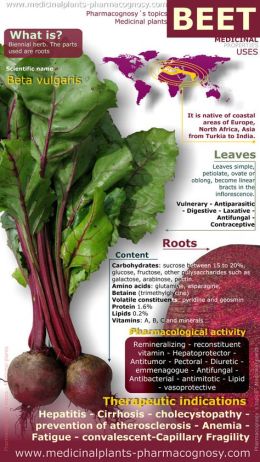 July, 2014, LWC DeRoos Drumbeat
July, 2014, LWC DeRoos Drumbeat
The Beetroot
This rugged, grungy-looking root is a beautiful crimson power food. It is packed with vitamins A, B1, B2, B6 and C, choline, folic acid, iodine, manganese, organic sodium, potassium, iron, calcium, copper and phosphorus. Just like Popeye’s spinach power food, beets are the red spinach.
Beets is one of the best sources of both folate and betaine. These two nutrients work together to lower levels of homocysteine in your blood reducing the inflammation that can damage your arteries and increase your risk of heart disease.
Beet leaves and stems are also packed with vitamins, minerals, and antioxidants preventing oxidation and cell damage.
Beets prevent oxidation of LDL and protect the heart against heart attack and stroke. “Look and feel younger!” “Reverse the aging process!” “Boost your energy!”
Beets have an abundant supply of folic acid which plays an important role in fetal development. It is required for the formation of the spinal cord and protects the child from congenital disorders.
Beets have mineral silica to absorb calcium efficiently to help you prevent conditions like osteoporosis. (Drink one glass of beet juice a day)
Beets are a great food for diabetics because it breaks down sugar at a slow rate preventing rapid increase in blood glucose levels.
Beets are loaded with iron, a mineral that is important for the formation of hemoglobin that transports oxygen to various parts of the body. With regular intake of beets, you can easily treat as well as prevent iron deficiency anemia.
Beets are the natural Viagra releasing nitric oxide into the body, increasing blood flow. It also has boron, a mineral that is important for the production of the male hormone testosterone.
Beets have rich stores of soluble fibre, acting as a natural laxative. It sweeps the colon and helps regulation of bowel movements. A Howard University study shows a reduced tumor growth rate by 12.5 percent in breast cancer and helps prostate cancer patients.
Beets boost signal transmission from the brain to different parts of the body. A study carried out by the University of Exeter, UK, showed that drinking beet juice could help proper functioning of the brain and beat the onset of dementia.
Eat them fresh and raw, not from a jar. Heating beets actually decreases their antioxidant power. Antioxidants are nutrients (vitamins and minerals) as well as enzymes (proteins in your body that assist in chemical reactions).
RECIPE:
For a simple single-serving salad, wash and peel one beet, and then grate it on the widest blade of a box grater. Toss with 1 tablespoon of olive oil and the juice of half a lemon. (I like mixing carrots and beets grated and putting in raisins, 1T. Vegenaise/Mayo as a variation.)



